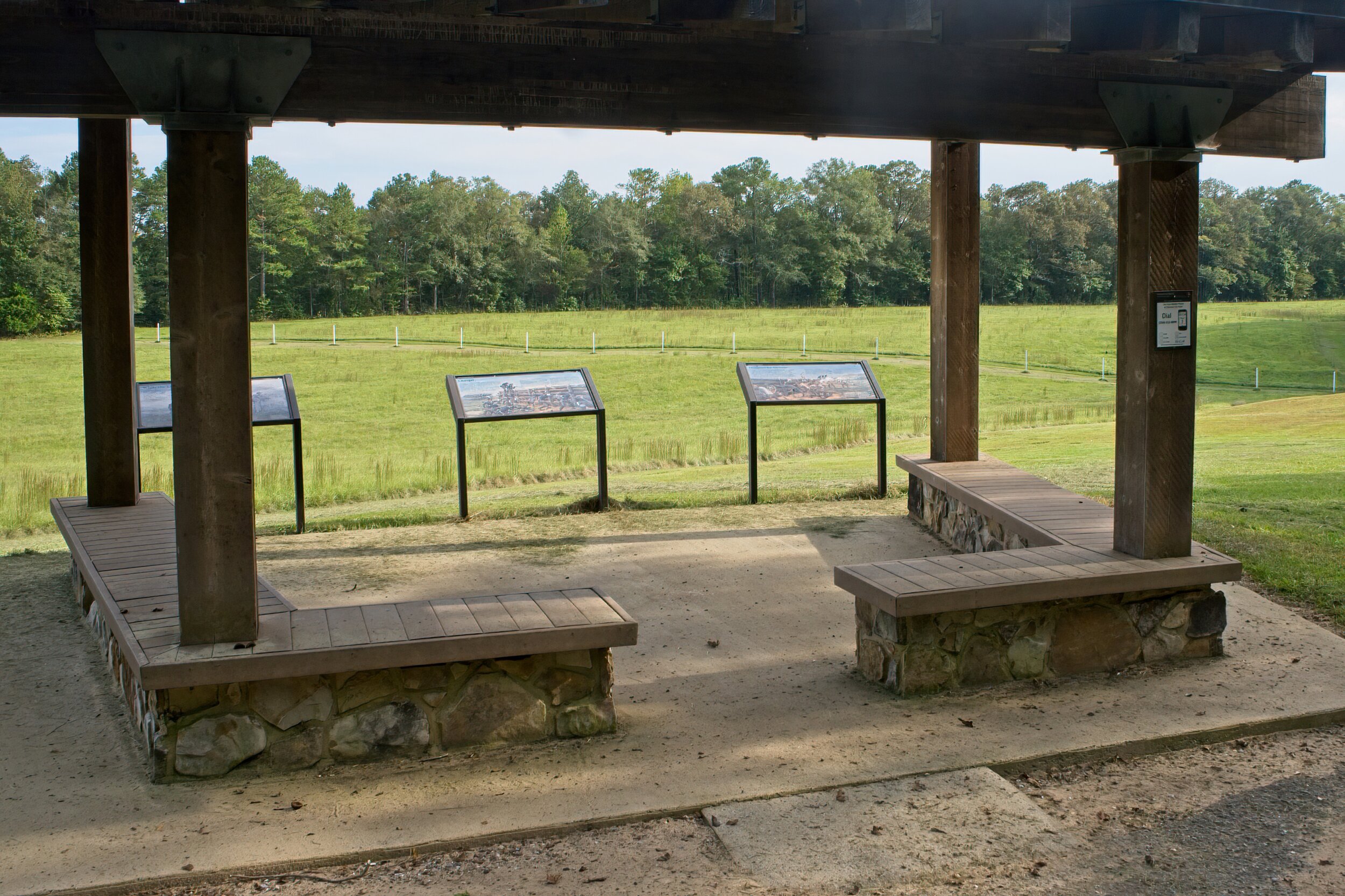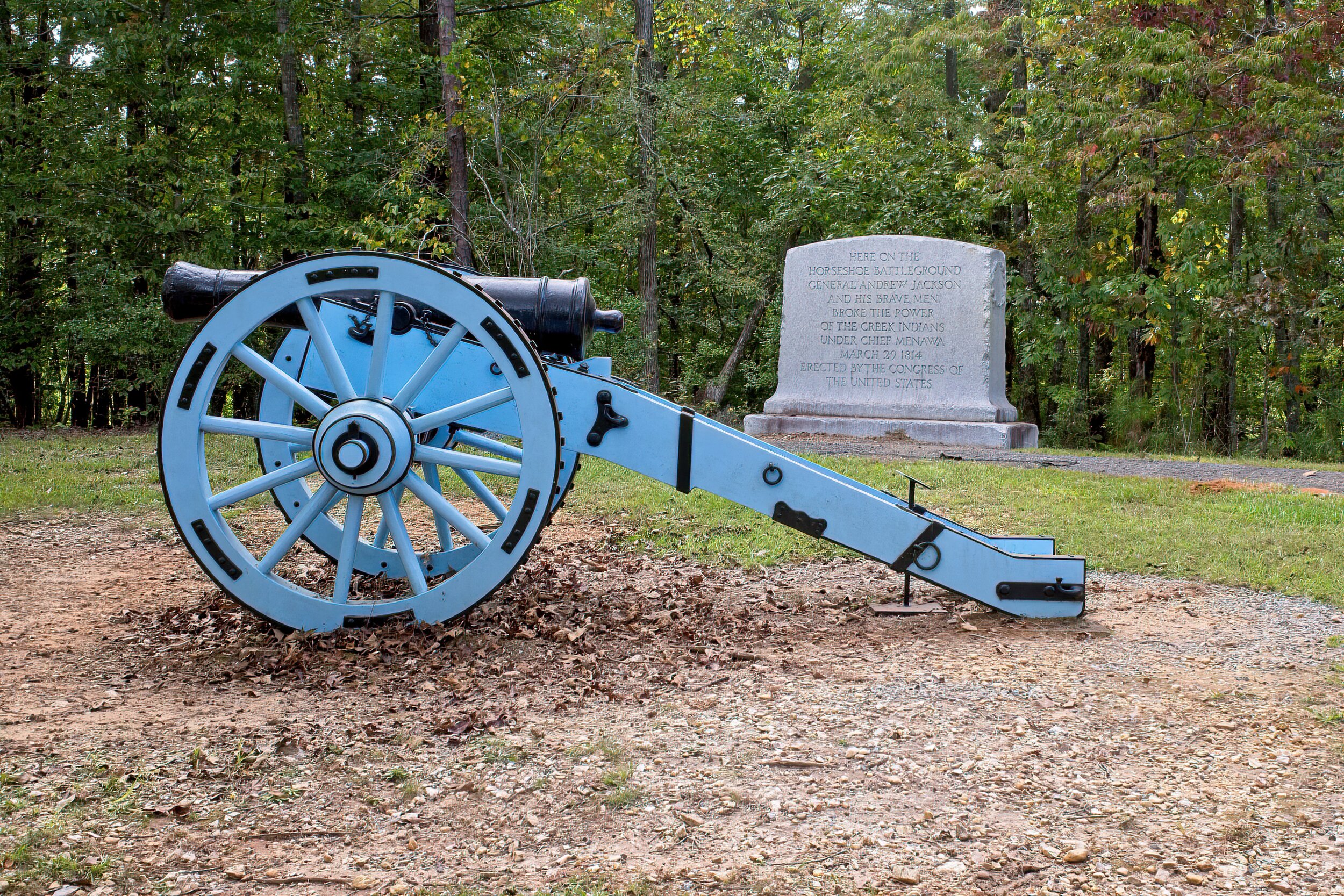The battle that took place here on March 27th of 1814 was the last of the Creek Wars. At Horseshoe Bend in the Tallapoosa River, the Northern Red Stick warriors built a fortified log wall to protect their village. They numbered about 1000 men, and their women and children were in the village a few hundred yards away.
Andrew Jackson attacked their position first with a cannon bombardment that proved ineffective against the strong fortifications. However, he sent about 1/3 of his troops and Indian allies across the river to attack the rear through the village when the cannons were fired. Jackson then ordered a bayonet charge that breeched the wall. Caught between the two wings of the army, the Red Stick warriors began a fighting retreat toward a woodland hill but they proved no match for the soldiers at that point.
It was an overwhelming victory for Jackson. While his losses were about 200, the Red Sticks lost between 550 and 800 warriors, and the last serious threat was broken. Millions of acres of land in the South was ceded to the US and, eventually, the survivors joined the long trek on the Trail of Tears.
The park is easy to access on paved roads and rather simple to grasp the scope of the battle as most of it can be viewed from one site. You can see a line where the barricade was built, the hill where the cannon were located, and follow the entire five hour fight from beginning to end. The river flows quietly past the site of the village. We were unable to enter the VC but there is a museum inside.
This is just below where the cannon were place and where the main body of troops began the charge. The white posts indicate the line of the fort.
The only marked grave onto site
The Tallapoosa River




